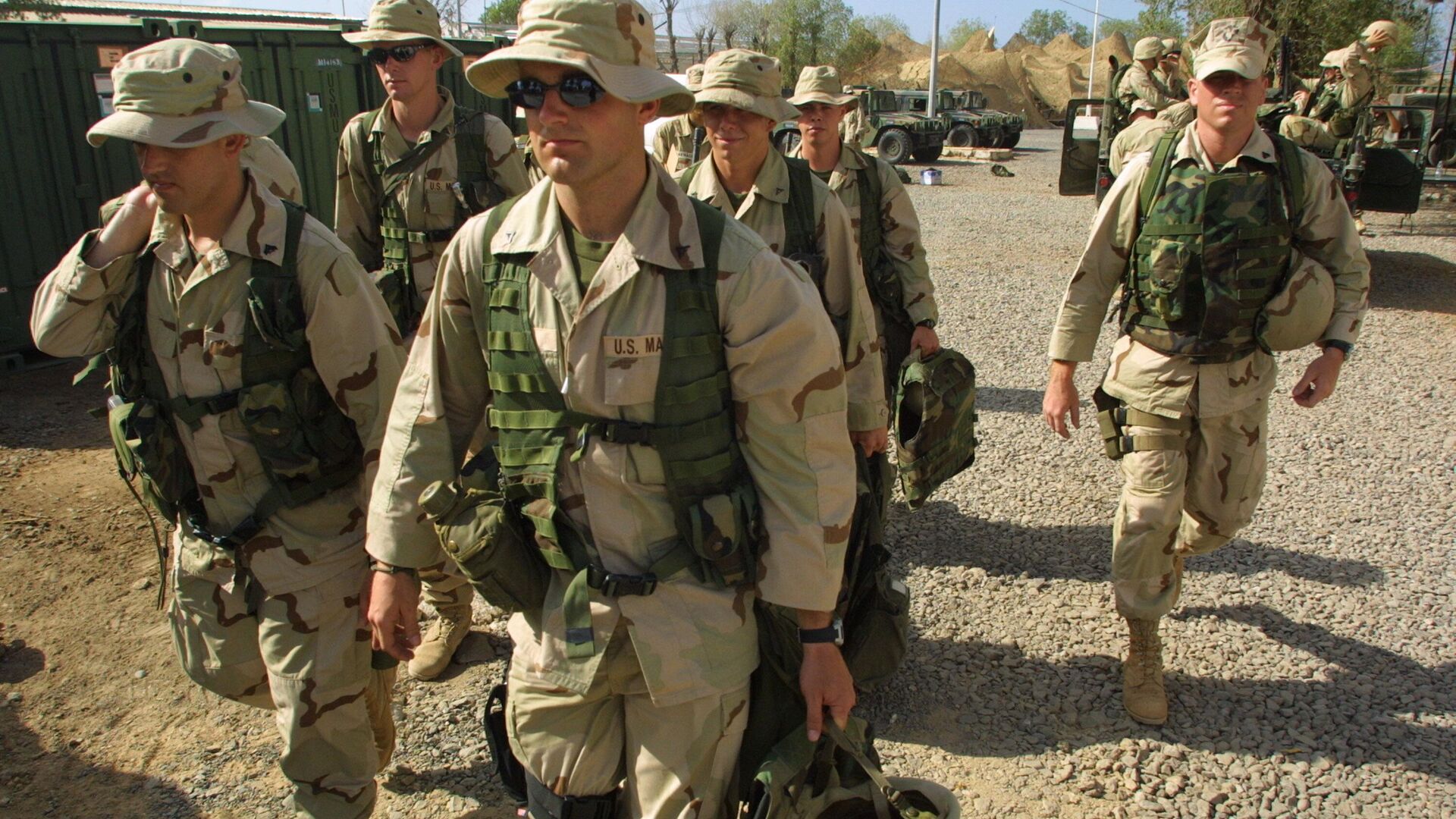https://en.sputniknews.africa/20241212/extreme-heat-in-africa-affects-us-military-operations-fuels-conflict--instability-pentagon-says-1069680894.html
Extreme Heat in Africa Affects US Military Operations, Fuels Conflict & Instability, Pentagon Says
Extreme Heat in Africa Affects US Military Operations, Fuels Conflict & Instability, Pentagon Says
Sputnik Africa
While the Biden administration is addressing climate change as a security concern, there are questions about how a potential Trump administration might... 12.12.2024, Sputnik Africa
2024-12-12T14:22+0100
2024-12-12T14:22+0100
2024-12-12T15:05+0100
sub-saharan africa
djibouti
africa
united states (us)
pentagon (us department of defense)
north america
horn of africa
military base
climate change
east africa
https://cdn1.img.sputniknews.africa/img/07e8/0c/0c/1069680471_0:0:3001:1688_1920x0_80_0_0_0ec435f4bc70604e05c6ee245ef39f6b.jpg
The impacts of extreme weather events create fertile ground for conflict across Africa and impact US military interests, Deputy Assistant Secretary of Defense for African Affairs Maureen Farrell reportedly said at the Defense Writers Group (an international association of defense correspondents) meeting in Washington.Extremely hot weather hampers US military operations, particularly at bases like Camp Lemonnier in Djibouti, where high temperatures cause operational difficulties, like limiting physical training for personnel, she explained.Severe climate change impacts also increase vulnerability to recruitment by extremist groups, she added.However, the changing climate in Africa is also threatening US strategic interests and "global stability," the official claimed.*a terrorist group outlawed in Russia and many other countries
djibouti
africa
united states (us)
north america
horn of africa
east africa
Sputnik Africa
feedback@sputniknews.com
+74956456601
MIA „Rossiya Segodnya“
2024
News
en_EN
Sputnik Africa
feedback@sputniknews.com
+74956456601
MIA „Rossiya Segodnya“
Sputnik Africa
feedback@sputniknews.com
+74956456601
MIA „Rossiya Segodnya“
djibouti, africa, united states (us), pentagon (us department of defense), north america, horn of africa, military base, climate change, east africa, military, drought, climate, conflict
djibouti, africa, united states (us), pentagon (us department of defense), north america, horn of africa, military base, climate change, east africa, military, drought, climate, conflict
Extreme Heat in Africa Affects US Military Operations, Fuels Conflict & Instability, Pentagon Says
14:22 12.12.2024 (Updated: 15:05 12.12.2024) Alla Shukanova
Writer / Editor
While the Biden administration is addressing climate change as a security concern, there are questions about how a potential Trump administration might approach the issue, likely shifting the language used but not the underlying problems, the official noted.
The impacts of extreme weather events create fertile ground for conflict across Africa and impact US military interests, Deputy Assistant Secretary of Defense for African Affairs Maureen Farrell reportedly said at the Defense Writers Group (an international association of defense correspondents) meeting in Washington.
"Djibouti is one of the hottest countries on earth, and our ability to operate and engage in Djibouti is significantly affected by climate stressors in the Horn of Africa," Farrell pointed out.
Extremely hot weather hampers US military operations, particularly at bases like Camp Lemonnier in Djibouti, where high temperatures cause operational difficulties, like limiting physical training for personnel, she explained.
"Globally, there are a number of African conflicts that we could point to that are over water and land rights. There is increasing tension over those kinds of resources," the US Department of Defense quoted Farrell as saying.
Severe
climate change impacts also increase vulnerability to recruitment by extremist groups, she added.
"Candidly, these are environments where violent extremists can thrive," the official noted, citing the example of recent droughts in Somalia, which lead to more recruitment for the Al-Shabaab* terrorist group due to a lack of opportunities for locals.
However, the changing climate in Africa is also threatening US strategic interests and "global stability," the official claimed.
*a terrorist group outlawed in Russia and many other countries

